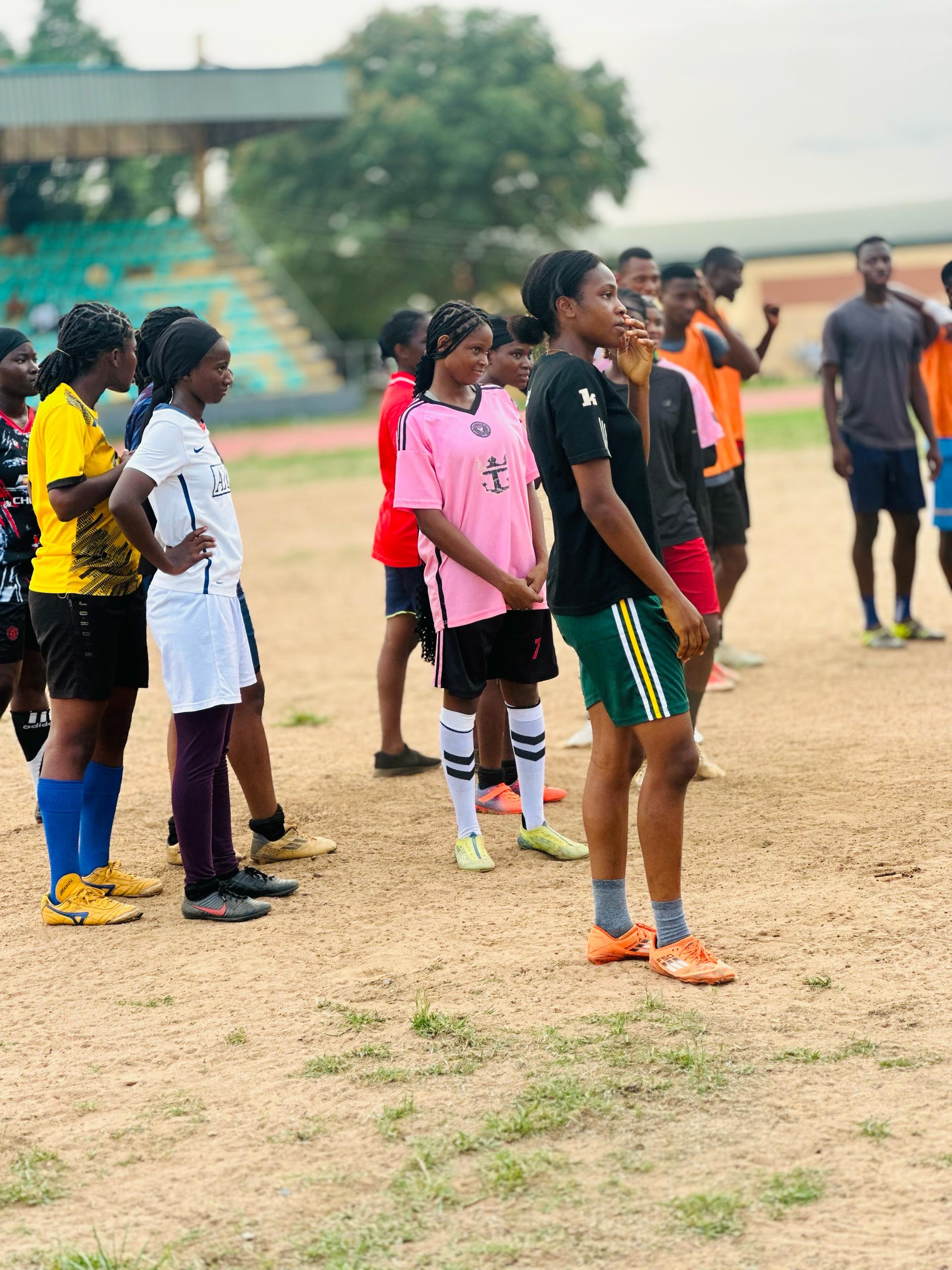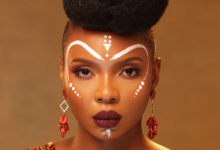
Bello Rokeebat, a 300-level Social Sciences Education student at the University of Ilorin, has loved sport from her earlier days. Growing up, she often snuck out to watch football matches, jilting lessons and hopping fences, all in pursuit of a passion that society tried to deny her.
When she was finally allowed to pursue her interests in football, it was not without constant judgments and absurd comments that questioned her religious convictions. Rokeebat noted that lots of people around her think that playing football converts women to lesbians. They police her body and judge her modesty. The holy book neither forbids nor restricts women from sporting, but religion is often used to guilt-trip women out of their passions.
“I wish I were born as a boy, because there’s no way a girl child would do what a man does and not be criticised. Football camp only allowed guardians’ visits twice weekly. But my dad came daily, because he feared I’d turn lesbian if left alone,” she recounted.
Rokeebat explained that playing football means developing a strong build, or other traits peculiar to men. This led to the absurd ideology of female athletes being lesbians. In a conservative society fully grounded in traditional beliefs like ours, you just learn to overlook, work hard, and pray to do well without being singled out as a lesbian. That’s passion, effort, and mental strength in one.
Simbiat Bakare, a gender advocate and the founding director of Naija Feminists Media, a leading media platform that promotes women’s rights, explained the stigma surrounding females pursuing sport as a career.
Simbiat noted that religious and cultural doctrines on modesty automatically exclude women from participating in sports, especially those who do not have the freedom to drop the doctrines. They have to sacrifice their passion to fit into their religious beliefs and cultural expectations.
Speaking on the importance of self-confidence in women, Simbiat explained that breaking societal stigmatisation means not letting the opinions of others control your life decisions. It means normalising doing what you love, even if society disagrees.
“If you would love to be a sports star, go for it! Society will adjust, and you will pave the way for other female sports stars to rise,” she said.
The latest survey conducted by the Women in Football group found that 89% of women working in football have experienced discrimination in the workplace, up from 82% in 2023 and 66% four years ago.
Sporting as an activity requires physical strength and mental agility, despite being features that women are generally believed to lack. Through years of consistent hard work and commitment to the craft by able women, it has been consistently shown and proven that it is not just for men. The Nigerian female football team, Super Falcons, have made it to the World Cup finals twice, a feat the Super Eagles have not been able to achieve.
Many believed being a young adult in a university equates to the freedom to do whatever whenever. This is not the case for Rokeebat. Despite having the skills required, sexist remarks bottled her potential.
When she tried to contest for the Sports Director position in the 200 level, she wasn’t allowed to buy the form because the position is unconstitutionally designed for men. Her tenacity got her the form eventually, but not the men’s votes.
In football gatherings, she’s not seen as another football player, but a pretty distraction.
“I get sexual jokes thrown at me. Doing a man’s work means you’re always with a man, so they expect you to be open to whatever they say, regardless of your feelings,” she stated.
When Rokeebat was called a distraction, it wasn’t just one man’s opinion; it reflects the global gap. Data compiled by the Women’s Sports Foundation shows that “Girls still have 1.3 million fewer opportunities to play sports than boys.”
Research conducted by UN Women reflects that, globally, 7 out of 10 people now watch women’s sports. Almost 73 per cent are interested in watching the female gender play at least a few times a year, which is not too far behind the 81% of those watching men’s sports with the same frequency.
Despite this surge of interest, the world hasn’t totally agreed on the prowess of the girl child in regard to sports. Beyond the statistics, players and sports enthusiasts are restricted in their willingness to play, watch, or even enjoy sporting activities in many parts of the country due to societal and religious norms.
Rokeebat’s story isn’t isolated. In conservative communities like Usmanu Danfodiyo University Sokoto (UDUS), even watching a match can become an act of defiance.
Arike Hassan, a third-year student of UDUS, had never publicly shown an iota of love for football despite being a very big fan until she let her intrusive thoughts win on that very night. A close friend who was aware of her interest asked if she’d like to watch an ongoing match at the viewing centre just like everyone else.
“I couldn’t decline because I had no other means of watching the match that night, even though the men-filled crowd was enough to remind me of the silent rule,” she explained.
The dim-lit room felt eerie at first. It felt like she was being watched instead of the match. But a few minutes into it, the spirit of sports made her relax into the crowd.
“I would have probably tried it again if that was all, but what came after made me regret ever setting foot in there,” she explained.
Arike received serious backlash from colleagues who felt her interest was not feminine and unexpected of a Muslim woman. Weeks later, there were still side talks on how daring and bold she was for being comfortable in a place meant for men.
Simbiat Bakare opined that the women’s interest in sports is received with such hostility because it is perceived to be “indecent” or “unfeminine,” and this highlights control over women’s bodies and lives.
The Sport Director of the Usmanu Danfodiyo University Student Union, Muhammad A. Rahman Olamide, in an interview with Pen Press Udus, explained that the low participation of female students in sports is due toa lack of enthusiasm.
He noted that there are female sports enthusiasts who aren’t showing their interest openly due to fear of judgment and criticism. He, however, assured that the current administration is working towards promoting women’s sports by creating a supportive environment where everyone feels encouraged and empowered to pursue their interests without fear.
Way forward
Simbiat explained that one way to normalise women’s sports in conservative communities is to dismantle the systemic barriers they face. There has to be a lot of intentional awareness to let the communities know that women’s lives are, first and foremost, their own. Everything else, including religion and societal expectations, comes secondary.
“Women are adult humans who can choose their path, decide what profession to pursue, and determine what they are comfortable wearing,” she said.
“Policies and agencies must also reinforce this freedom of expression. For example, an agency should be set up to report and prosecute people who violate women’s right to expression,” she concluded.
Recommendations that Simbiat said are not just bureaucratic fixes, but survival tools for girls like Rokeebat who have been shut out of doors on the basis of their gender.






